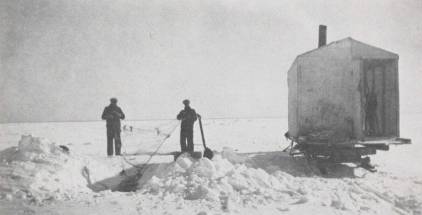Teachers’ union raises one valid point in litany of illegitimate Bill 35 gripes
Read this article for free:
or
Already have an account? Log in here »
To continue reading, please subscribe:
Monthly Digital Subscription
$0 for the first 4 weeks*
- Enjoy unlimited reading on winnipegfreepress.com
- Read the E-Edition, our digital replica newspaper
- Access News Break, our award-winning app
- Play interactive puzzles
*No charge for 4 weeks then price increases to the regular rate of $19.00 plus GST every four weeks. Offer available to new and qualified returning subscribers only. Cancel any time.
Monthly Digital Subscription
$4.75/week*
- Enjoy unlimited reading on winnipegfreepress.com
- Read the E-Edition, our digital replica newspaper
- Access News Break, our award-winning app
- Play interactive puzzles
*Billed as $19 plus GST every four weeks. Cancel any time.
To continue reading, please subscribe:
Add Free Press access to your Brandon Sun subscription for only an additional
$1 for the first 4 weeks*
*Your next subscription payment will increase by $1.00 and you will be charged $16.99 plus GST for four weeks. After four weeks, your payment will increase to $23.99 plus GST every four weeks.
Read unlimited articles for free today:
or
Already have an account? Log in here »
Hey there, time traveller!
This article was published 25/04/2023 (956 days ago), so information in it may no longer be current.
Concerns raised by the Manitoba Teachers’ Society about a teacher discipline bill currently before the legislative assembly are mostly full of holes. But the union has raised one issue that should be addressed.
Bill 35, which would, among other things, establish an open and transparent process for the public to make official complaints against teachers accused of abusing students, went before public hearings this week. The proposed law, brought in by the Stefanson government, is long overdue. It would bring Manitoba in line with other provinces that have similar mechanisms.
The teachers’ union has consistently opposed any kind of open process to hold its members accountable for professional misconduct. They have, for years, been ardent defenders of the status quo, where complaints are dealt with behind closed doors and the public is left in the dark about predator teachers.
It’s no surprise they came out swinging as soon as Bill 35 was introduced in March, calling it “anti-teacher” and making the preposterous claim in a letter to Education Minister Wayne Ewasko that it represents an “open season on teachers.”
RUTH BONNEVILLE / FREE PRESS FILES Education Minister Wayne Ewasko
The bill is nothing of the kind.
Most of the union’s complaints about the bill have no merit. One of its main beefs is that the proposed law would allow people to make “frivolous” complaints against teachers, leaving them vulnerable to unfounded attacks. It’s a bogus claim.
There is a three-stage process that protects teachers against groundless accusations. Under the bill, most, if not all, frivolous allegations would be dismissed by a commissioner before they ever got to a hearing. The commissioner can dismiss a complaint if it is, among other things, “frivolous, vexatious or trivial or gives rise to an abuse of process.”
If a complaint has merit, it may go to a disciplinary hearing after it is fully investigated by the commissioner. A panel of three — made up of one teacher, one person nominated by the Manitoba School Board Association and one member of the public — would hear the case. They could either dismiss the complaint, find the teacher guilty or make any other report to the commissioner they consider appropriate. Decisions by the panel must be in writing and made public, with some exceptions.
The third stage allows teachers or the commissioner to appeal to the Court of King’s Bench, which can dismiss the appeal, overturn the decision or refer it back to the panel with instructions.
There’s also a “consent resolution” stage where all parties can enter into an agreement where the teacher acknowledges wrongdoing and conditions are set (and the decision is made public). Clearly, there is sufficient accountability and recourse to prevent the kind of frivolous complaints MTS warns of.
That’s not to say the bill is perfect. One of the concerns raised by MTS, that teacher “competency” is included in the bill, deserves attention.
MTS says the proposed law should deal solely with professional misconduct, not teacher competency. In the union’s view, the latter is the purview of the employer, not a disciplinary process. MTS says competency should be removed from the bill altogether.
However, competency is important. If a teacher is not competent to teach, or if a remedy is required related to a teacher’s competency, it should be subject to an open and independent evaluation process.
The problem is that “competency” is not defined in the bill. That may have been an oversight. Whatever the case, it should be corrected.
Good legislation should include clear definitions. When legislative language is vague or not properly defined, there’s a risk the law may not be applied as intended. Legislation needs clarity.
Good legislation should include clear definitions. When legislative language is vague or not properly defined, there’s a risk the law may not be applied as intended. Legislation needs clarity.
For instance, professional misconduct is properly defined in the bill. It means teacher conduct against a student or child that makes them unsuitable to be a teacher, including sexual abuse or sexual exploitation, physical harm or “significant” emotional harm. It’s not an exhaustive list but it provides specific guidance to the commissioner, a panel and the courts.
By contrast, teacher competency is not defined at all in the bill. It’s open to interpretation without any guidance or meaning in statute. That’s a mistake. However, it shouldn’t be removed, it should be defined through an amendment to the bill.
MTS is right to raise it as an issue, but the union is wrong to call for its elimination. Manitoba needs an open and transparent process to assess both the competency and professional conduct of teachers.
tom.brodbeck@freepress.mb.ca

Tom Brodbeck is an award-winning author and columnist with over 30 years experience in print media. He joined the Free Press in 2019. Born and raised in Montreal, Tom graduated from the University of Manitoba in 1993 with a Bachelor of Arts degree in economics and commerce. Read more about Tom.
Tom provides commentary and analysis on political and related issues at the municipal, provincial and federal level. His columns are built on research and coverage of local events. The Free Press’s editing team reviews Tom’s columns before they are posted online or published in print – part of the Free Press’s tradition, since 1872, of producing reliable independent journalism. Read more about Free Press’s history and mandate, and learn how our newsroom operates.
Our newsroom depends on a growing audience of readers to power our journalism. If you are not a paid reader, please consider becoming a subscriber.
Our newsroom depends on its audience of readers to power our journalism. Thank you for your support.










